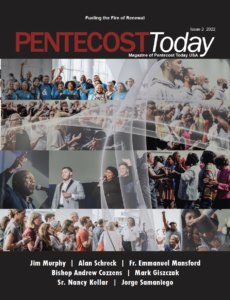33rd Sunday in Ordinary Time
Meditation and Questions for Reflection or Group Discussion
Mass Readings:
1st Reading Daniel 12:1-3
Responsorial: Psalm 16:5, 8-11
2nd Reading: Hebrews 10:11-14, 18
Gospel: Mark 13:24-32
Always Be Ready for Jesus Second Coming
Live Each Day As If It Were Your Last
Of that day or hour, no one knows. (Mark 13:32)
When Jesus said that “no one knows” when the Second Coming would happen, was he saying that even he didn’t know? It sure seems that way. Maybe he was reminding us that he had submitted to the limitations of being human, just like us. Yes, he was fully divine, but he was also fully human. And that entailed certain limitations. This is why Luke tells us that Jesus was always increasing in wisdom “before God and man” (Luke 2:52).
Today, however, Jesus knows when he will come again. The problem is, we still don’t know!
Repeatedly throughout history, people have tried to predict the end of the world. St. Paul thought it was just around the corner. St. Hippolytus of Rome and St. Irenaeus of Lyon thought it would happen in AD 500. John Wesley, the first Methodist, thought the end would come in 1836. Many Christian leaders—and no shortage of psychics—have also weighed in. Not surprisingly, many of these people then recalculated the dates after their first predictions didn’t come true, only to have their followers disappointed again.
Some believers are more cautious. They tell us that we will see specific clues when the time is near. They point to certain signs—a war in the Middle East, a drought in Africa, earthquakes in Peru, or some other disaster. When those signs occur, it means that Jesus is very near.
Still, no human being knows when Jesus will come. It could be today. It may not be for thousands of years.
St. Francis had a different take on the subject. Once, when he was working in the garden, a friar asked, “What would you be doing now if you knew that Jesus was coming back today?” Francis replied, “I would keep hoeing my garden.” Francis knew he was trying his best to be ready, and there was nothing more he could do.
The point is, Jesus will come. So our best answer is the same as it has always been: be ready.
“Come, Lord Jesus!”
(Many thanks to The Word Among Us (www.wau.org) for allowing us to use meditations from their monthly devotional magazine. Used with permission.)
Download a .pdf of this week’s Reflection and Questions here:

Questions for Reflection or Group Discussion:
- The First Reading is a prophetic word pointing to Jesus’ Second Coming and the resurrection of the dead: In those days, I Daniel, heard this word of the Lord: “At that time there shall arise Michael, the great prince, guardian of your people; it shall be a time unsurpassed in distress since nations began until that time. At that time your people shall escape, everyone who is found written in the book. Many of those who sleep in the dust of the earth shall awake. Some shall live forever; others shall be an everlasting horror and disgrace (Daniel 12:1-2).
- What is your reaction to the words that the author of Daniel uses to describe the Second Coming, Heaven, and Hell?
- Do you agree with the words of the reading, especially when considering the opening words: In those days, I Daniel, heard this word of the Lord? In what way is the reading in line or isn’t in line with your own beliefs?
- Considering God’s judgment on sin, what steps can you take to grow in holiness and your relationship with the Lord?
- The Responsorial Psalm opens with these words of the psalmist: O LORD, my allotted portion and my cup, you it is who hold fast my lot. I set the Lord ever before me; with him at my right hand I shall not be disturbed. The psalmist goes on to remind us of the Lord’s eternal faithfulness: Therefore my heart is glad and my soul rejoices, my body, too, abides in confidence; because you will not abandon my soul to the netherworld, nor will you suffer your faithful one to undergo corruption. You will show me the path to life, fullness of joys in your presence, the delights at your right hand forever.
- How does the psalmist describe the great blessings we can have when we turn to the Lord? In what ways do you believe these blessings apply to you? How would you describe the ways the Lord has blessed your life?
- In what way are the words of this psalm also related to the promise of the First Reading?
- In the Second Reading, we are again reminded that Christ has paid the price for our sins when he offered one sacrifice for sins, and took his seat forever at the right hand of God; now he waits until his enemies are made his footstool. For by one offering he has made perfect forever those who are being consecrated.
- What impact does the truth of the words of this reading have on your confidence in the one sacrifice for sin?
- What do you think it means that: For by one offering he has made perfect forever those who are being consecrated?
- How can you allow the words of this reading to impact how you live out your life?
- In the Gospel reading, Jesus describes his second coming: In those days after that tribulation the sun will be darkened, and the moon will not give its light, and the stars will be falling from the sky, and the powers in the heavens will be shaken. And then they will see ‘the Son of Man coming in the clouds’ with great power and glory, and then he will send out the angels and gather his elect from the four winds, from the end of the earth to the end of the sky. Jesus also tells us to be watchful: Learn a lesson from the fig tree. When its branch becomes tender and sprouts leaves, you know that summer is near. In the same way, when you see these things happening, know that he is near, at the gates.
- How would you describe the differences between Jesus’ first coming and his second coming when he will gather his elect from the four winds, from the end of the earth to the end of the sky?
- What do you think are some of the signs of his second coming? How can you better prepare for his second coming?
- In what ways does reflecting on and preparing for Jesus’ second coming give you joy and hope?
- The meditation is also a reflection on the Gospel Reading and these words: Of that day or hour, no one knows. It reminds us that “Repeatedly throughout history, people have tried to predict the end of the world. . . Not surprisingly, many of these people then recalculated the dates after their first predictions didn’t come true, only to have their followers disappointed again.” The meditation end with these words; “St. Francis had a different take on the subject. Once, when he was working in the garden, a friar asked, ‘What would you be doing now if you knew that Jesus was coming back today?’ Francis replied, ‘I would keep hoeing my garden.’ Francis knew he was trying his best to be ready, and there was nothing more he could do. The point is, Jesus will So our best answer is the same as it has always been: be ready.”
- Why do you think, as the meditation reminds us, that throughout our history so many people, including St. Paul, have tried to predict Jesus’ Second Coming and the “end of the world”?
- The meditation also tells us of St. Francis’ response, when he is asked, “What would you be doing now if you knew that Jesus was coming back today?” Were you surprised by his answer, “I would keep hoeing my garden”? Why do you think he was able to answer that way? How would you respond if you were asked the same question? Why?
- Since Jesus told us that no one knows when the end will come, do you believe that our best strategy is to live each day as if it were our last and to always “be ready”? Why or why not?
Take some time now to pray and ask for the grace to be ready to welcome Jesus’ return, no matter when his Second Coming occurs. Use the prayer below from the end of the meditation as the starting point.
“Come, Lord Jesus!”
[The discussion questions were created by Maurice Blumberg, who is currently a member of the board of directors of the ChristLife Catholic Ministry for Evangelization (www.christlife.org), a member of the National Service Committee Council of the Catholic Charismatic Renewal (www.nsc-chariscenter.org), and a board member of The Love of Christ Foundation. Prior to this, Maurice was the founding executive director of the National fellowship of Catholic Men, a chairman of the board of The Word Among Us (www.wau.org), and a director of partner relations for The Word Among Us Partners ministry. He can be contacted at (Enable Javascript to see the email address) mblumberg@wau.org or mblumberg@aol.com.]

 Click Here for us to pray for your intentions through our new website.
Click Here for us to pray for your intentions through our new website. 
